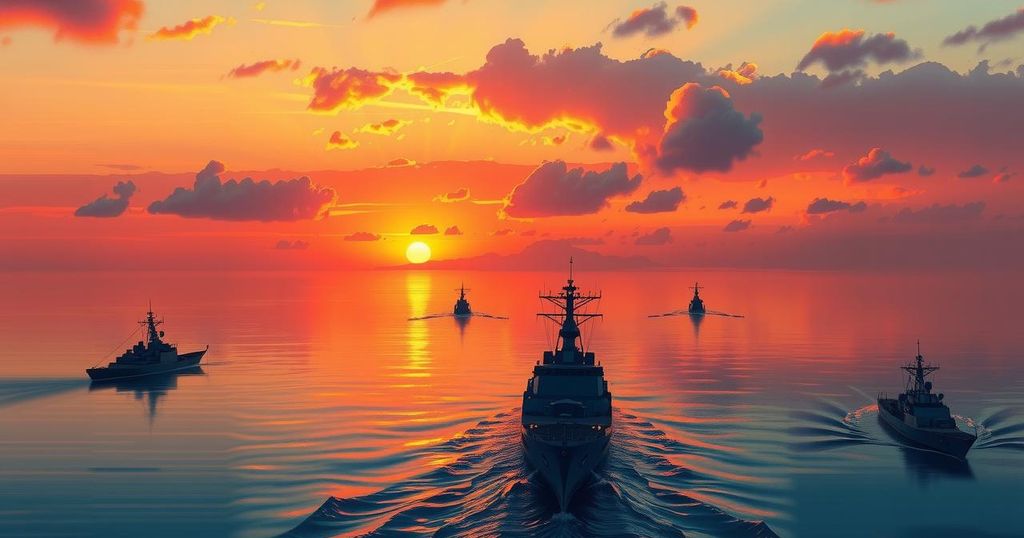Ukraine has successfully challenged Russian naval supremacy in the Black Sea by pushing back Russian forces and enhancing its naval capabilities. Significant events include the sinking of the Moskva and the deployment of advanced weaponry. However, political scenarios threaten future capabilities, emphasizing the need for continued innovation and resilience in Ukraine’s naval forces.
The ongoing conflict in the Black Sea has witnessed Ukraine significantly improving its naval capabilities, subsequently challenging Russian dominance in the region. Despite being initially outmatched by the formidable Russian Black Sea Fleet, Ukraine, in collaboration with its intelligence agencies, has successfully pushed back Russian forces to their own coastline, thus regaining control over the sea. This reversal marks a pivotal moment, as Ukraine now holds strategic advantages in naval operations.
In a dramatic turn of events, Ukrainian forces have managed to shift the offensive against Russia, notably striking Russian positions in Crimea. This shift began with the deployment of shore-based anti-ship missiles in spring 2022 and peaked with the sinking of the Russian flagship Moskva by indigenous Neptune missiles. Continued attacks facilitated by uncrewed surface vessels (USVs) and advanced missile systems have further confined the Russian Navy, effectively limiting their operational range.
Despite these advancements, the Russian Navy remains a formidable threat, as they persist in launching Kalibr cruise missiles against Ukrainian targets. Their attempts to enhance defenses against Ukrainian USVs signify their intent to maintain a presence in the Black Sea. Furthermore, Russia’s hold on Crimea encompasses not only military strategy but also control over valuable natural resources within Ukraine’s exclusive economic zone (EEZ). This factor heightens the importance of Ukraine’s naval capabilities.
The evolving political landscape poses additional challenges for Ukraine’s naval strategy. There is a potential scenario in which Ukraine may face pressure to accept a disadvantageous peace deal, risking future capacity to deter inevitable Russian aggression. Conversely, should Ukraine continue to engage without American support, the situation could become increasingly precarious, especially with the loss of crucial intelligence sharing that currently aids in monitoring Russian movements.
However, it is plausible that Ukraine can develop its uncrewed platform capabilities through other alliances, maintaining a strategic edge over Russia’s crewed naval forces. Although challenges persist, the leveraging of technology and innovation will continue to empower Ukraine’s naval efforts in the Black Sea, indicating that control of this critical region still predominantly lies with Ukraine.
In summary, Ukraine’s naval efforts have turned the tide in the Black Sea, effectively denying Russian maritime dominance. Through innovation and strategic partnerships, Ukraine has achieved significant victories, including the sinking of the Moskva. However, continuous vigilance is necessary as both political and military challenges remain. The future may see Ukraine adapting its strategies to sustain an upper hand, regardless of potential shifts in international support or countermeasures from Russia.
Original Source: www.navalnews.com




